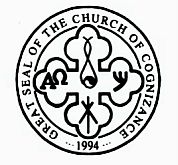As many students of Zoroastrianism have come to realize there are a multitude of names and dates attributed to the founder of the religion, which also carries as many names, however, throughout the ages it has been known to many simply as "The Good Religion".
A clue into who, or what, Zar-aster defines can be found in the footnotes on pages 11-13 of the transcribed lecture "Spirit of the Zorostrian Religion"that was presented to a group of Parsi Zoroastrians by Col. Olcott, 14th of February 1882, in Bombay, India:
In the oldest Iranian book called the Desatir - a collection of the teachings of the fourteen oldest Iranian prophets. (to make the number fifteen and include, among them, Simkendesh, or "Secander," is a grave error, as may be proved on the authority of Zarathusht himself in that book) - Zarthusht stands thirteenth in the list. The fact is significant. Respecting; the period of Zoroaster the First, or his personality, there is no trustworthy information given by any of the "Western, scholars; their authorities conflicting in the most perplexing manner. Indeed among the many discordant notices, I find the earliest Greek classic writers who tell us that Zarathusht lived from 600 to 5,000 years before the Trojan war, or 6,000 years before Plato. Again, it is declared by Berosus, the Chaldean priest, that Zoroaster was a founder of Indian dynasty in Bebylon 2200 B.C.; while the later native traditions inform us that he was the son of Purushaspa, and a contemporary of Gustaspa, the father of Darius, which would bring him within 600 B.C. Lastly, it is mentioned by Bunsen that he was born at Baktria before the emigration of the Baktrians to the Indus, which took place, as the learned Egyptologist shows us, 3784 B.C.
Among this host of contradictions, what conclusion can one come to ~ Evidently, there is but one hypothesis left: and that is that they are all wrong, the reason for it being the one I find in the secret traditions of the esoteric doctrine namely, that there were several teachers of that name. Neither Plato nor Aristotle, so accurate in their statements, is likely to have transformed 200 years into 6,000, As to the generally accepted native tradition, which makes the great prophet a contemporary of Darius' father, it is absurd and wrong on the very face of it. Though the error is too palpable to need any elaborate confutation, I may say in regard to it a few words. The latest researches show that the Persian inscriptions point out to Vistasp as the last of the line of Kaianian princes who ruled in Baktria, while the Assyrian conquest of that country took place in 1200 B.C. Now this alone would prove that Zoroaster lived twelve or thirteen hundred years B.C., instead of the 600 assigned to him; and thus that he could not have been a contemporary of Darius Hystaspes, whose father was so carelessly and for such a length of time confounded in this connection with the Vistasp who flourished six centuries earlier. If we add to this the historical discrepancy between the statement of Ommianus Marcelinus - which makes Darius crush the Magi and introduce the worship of Ahurmazda - and the inscription on the tomb of that king which states that he was "teacher and hierophant of Magianism;†and that other no less significant and very important fact that the Zoroastrian Avesta shows no signs of the knowledge of its writer or writers with either the Medes, the Persians, or the Assyrians, the ancient books Of the Parsis remaining silent upon and showing no acquaintance with any of the nations that have been known to have dwelt in or near the Western parts of Iran, - the accepted figure 600 B.C. as the period in which the prophet is alleged to have flourished becomes absolutely improbable.
It is therefore safe to come to the following conclusions: -(1.) That there were several (in all seven say the Secret Records) Ohuru-asters or spiritual teachers of Ahurmazda, an office corrupted later into Guru-asters and Zuru-asters from" Zera- Ishtar," the title of the Chaldean or Magian priests; and (2) that the last of them was Zarathusta of the Desatir, the thirteenth of the prophets, and the seventh of that name. It was he who was the contemporary of Vistasp, the last of the Kaianian princes, and the Compiler of the Vendidad, the Commentaries upon which are lost, there remaining now but the dead letter.
